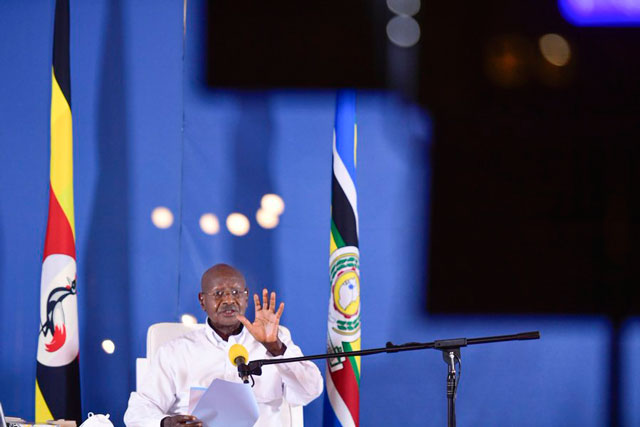
As a wave of new legislation against homosexuality is again being considered in the region, Museveni stand on the issue is quoted widely in Uganda and neigbouring Kenya. “If the West doesn’t want to work with us because of homosexuals, then we have enough space here to live by ourselves and do business with other people” (CNN, 2014).
You give it to Museveni, because many African leaders avoid this issue. It is only former Zimbabwean President Robert Mugabe who addressed this matter openly at the UN conference in 2015, something that also elevated him in the eyes of many on the contientent..
A decade after Museveni made his remarks on CNN, Kenyan Supreme Court delivered its mindboggling and provocative ruling, especially for Kenyan MPs who spent much of their time deliberating and condemning this decision and the Supreme Court altogether. The Supreme Court ruled “at a time where the Kenyan LGBTIQ+ community is decrying the increased targeting and violence; this decision affirms the spirit and intention of the Constitution to protect all Kenyans and guarantee their rights.” This judgment did not augur well with the MPs who openly attacked the Supreme Court for its decision.
Well, now that we have put everything in the context, then how did Museveni make good out of this controversial and thorny issue? He squarely declared his anti-gay stance that he’s been agitating for many years. If you read his words between the lines, you’ll find that Museveni has a plan B already. He hints that if the West abandon him, the East, which is China and Russia will take him in. Again, where did Museveni get such guts?
Recently Vladimir Putin also started a crusade against gays and the likes when he signed an anti-gay bill into law December last year. Geopolitics aside, by coming out brazenly as he did, for the first time, Museveni united Kenya and Uganda on this matter. Later President William Ruto had to hastily issue a statement on the matter after some Kenyan MPs wanted him to do so.
Like, Museveni Ruto said “I am a God fearing man. Even though we respect the court, our religion, traditions, law and customs do not allow for women to marry fellow women, nor for men to marry fellow men” (Daily Nation, March, 3, 2023).
As for Tanzania where I come from, nobody talks about it despite the fact that there has been reported the increase in homosexual activities in the country. When news broke that there were such activities, the Minister of Education, Science and Technology Prof Adolf Mkenda was quoted as saying “the government is very shocked by the report and we’re ready to take appropriate measures” (Allafrica, Jan 18, 2023).
If there are things Museveni is the master of, it is his ability to rebrand and the timing. After standing tall against gays, Museveni beat the game so to speak. For many so-called Africanists started to sing his praises. Many went far as alleging that the West seeks to introduce its things as the means of destroying Africa’s population with the aim of taking their land and resources after its population shrinks as it is a problem in the West currently.
I watched Kenya’s Parliament on the issue. Two things surfaced. Almost whoever took the podium referenced two things, namely African cultures and religion. For the first time, African cultures that religions felled were united under Museveni’s stance to condemn LGBTIG+, which is ironic since the two are antithetic in nature.
Underscoring the sensitivities of the two, I don’t know how this thing will end. However, one thing is obvious that the EAC can be united easily. What is needed is the agenda for it. If it can be easily united this way, then why don’t the likes of Museveni scratch their heads and come up with the ingenuity of uniting it under whatever pretext? If anything, Museveni, though for a while, might have already succeeded in uniting and lead Kenya and Uganda in anti-gay campaigns.
Source: Independent (Uganda) today.


No comments:
Post a Comment